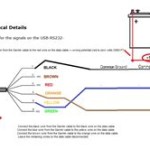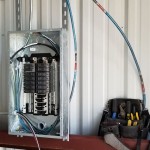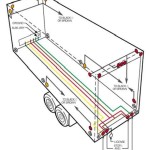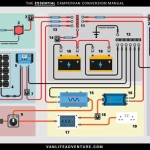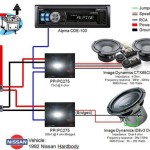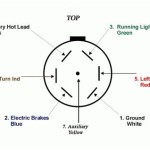PVC pipe for electrical wiring is a non-metallic conduit that safeguards electrical wires from environmental factors and mechanical damage. In modern construction, PVC pipes encase and protect electrical wires in homes, offices, and industrial facilities.
PVC pipes ensure safety, prevent electrical hazards, and enhance the durability of electrical systems. Its lightweight, corrosion resistance, and ease of installation have made it a widely adopted solution. The development of PVC resin technology in the 1950s marked a significant milestone in the widespread use of PVC pipes for electrical applications.
This article will delve into the advantages of PVC pipes for electrical wiring, exploring their properties, installation techniques, and industry standards to provide a comprehensive understanding of this essential component in electrical infrastructure.
PVC pipes are vital components of electrical wiring, playing a crucial role in ensuring safety, durability, and efficiency. Their properties and applications encompass various essential aspects, which we will explore in detail.
- Material Properties: Durability, Corrosion Resistance, Flame Retardancy
- Electrical Properties: Insulation, Current Carrying Capacity, Voltage Rating
- Installation Characteristics: Flexibility, Lightweight, Ease of Joining
- Safety Features: Protection from Electrical Hazards, Prevention of Fire Spread
- Environmental Considerations: Resistance to UV Radiation, Non-Toxic, Recyclability
- Cost and Availability: Cost-Effective, Widely Accessible
- Industry Standards: Compliance with Electrical Codes, Quality Assurance
- Applications: Residential, Commercial, Industrial, Outdoor Installations
- Maintenance and Inspection: Ease of Inspection, Durability
These aspects are interconnected and contribute to the overall effectiveness of PVC pipes in electrical wiring. For instance, their durability and corrosion resistance ensure longevity, while their flexibility and ease of installation reduce labor costs. Moreover, compliance with industry standards guarantees safety and reliability, while their cost-effectiveness makes them a practical choice for various applications.
Material Properties
The material properties of PVC pipes contribute significantly to their effectiveness in electrical wiring. These properties include durability, corrosion resistance, and flame retardancy, providing protection and reliability in various applications.
- Durability: PVC pipes exhibit exceptional durability, withstanding impact, abrasion, and extreme temperatures. This ensures long-lasting performance and reduces the need for frequent replacements or repairs.
- Corrosion Resistance: PVC pipes are highly resistant to corrosion caused by moisture, chemicals, and UV radiation. This property is crucial in preventing degradation and maintaining structural integrity over time.
- Flame Retardancy: PVC pipes are self-extinguishing and meet stringent flame retardancy standards. This characteristic minimizes the risk of fire spread, enhancing safety in the event of electrical faults or external fires.
These material properties collectively contribute to the reliability and longevity of PVC pipes in electrical wiring. Their durability ensures uninterrupted operation, corrosion resistance safeguards against environmental factors, and flame retardancy provides a crucial safety advantage. These properties make PVC pipes an ideal choice for protecting electrical systems in demanding environments and ensuring the safety of buildings and occupants.
Electrical Properties
The electrical properties of PVC pipes are crucial in ensuring the safe and efficient transmission of electricity. These properties include insulation, current carrying capacity, and voltage rating.
- Insulation: PVC pipes provide excellent electrical insulation, preventing current leakage and protecting against electrical shocks. This is achieved through the non-conductive nature of PVC, which ensures that electricity is contained within the wires.
- Current Carrying Capacity: PVC pipes are designed to handle specific current loads, which vary depending on the pipe size and wall thickness. Exceeding the current carrying capacity can lead to overheating and potential fire hazards.
- Voltage Rating: PVC pipes are rated for specific voltage levels, indicating their ability to withstand electrical potential without breaking down. Using pipes with a voltage rating lower than the actual voltage can result in electrical failures.
- Flammability: PVC pipes are inherently flame retardant, minimizing the risk of fire spread in the event of an electrical fault. This property enhances safety and prevents the propagation of flames.
These electrical properties collectively ensure the safe and reliable operation of PVC pipes in electrical wiring systems. By providing insulation, limiting current flow, and withstanding voltage, PVC pipes protect against electrical hazards, prevent fires, and maintain the integrity of electrical circuits.
Installation Characteristics
In the context of PVC pipe for electrical wiring, installation characteristics play a vital role in ensuring efficient, safe, and cost-effective electrical systems. These characteristics include flexibility, lightweight, and ease of joining, which facilitate efficient handling, quick installation, and secure connections.
- Flexibility: PVC pipes are flexible, allowing them to conform to bends and curves without kinking or breaking. This flexibility simplifies installation in tight spaces, around obstacles, and along irregular pathways.
- Lightweight: PVC pipes are significantly lighter than traditional metal conduits, making them easier to handle, transport, and install. This reduces labor costs and minimizes fatigue during installation.
- Ease of Joining: PVC pipes feature a variety of joining methods, including solvent welding, threaded connections, and compression fittings. These methods are quick and easy to implement, ensuring secure and reliable connections.
Collectively, these installation characteristics contribute to faster project completion, reduced labor costs, and enhanced safety during electrical wiring. The flexibility of PVC pipes allows for easy navigation around obstacles, the lightweight nature simplifies handling and transportation, and the ease of joining facilitates quick and secure connections. These factors make PVC pipes an ideal choice for electrical wiring in both residential and commercial applications, where efficient installation and reliable performance are paramount.
Safety Features
In the realm of electrical wiring, safety takes paramount importance, and PVC pipes play a crucial role in safeguarding electrical systems and their surroundings. Their inherent safety features provide robust protection against electrical hazards and effectively prevent the spread of fire, ensuring the well-being of occupants and the integrity of buildings.
- Electrical Insulation: PVC pipes act as a non-conductive barrier, preventing current leakage and minimizing the risk of electrical shocks. This insulation ensures that electricity is safely contained within the wires, preventing accidents and ensuring the safe operation of electrical systems.
- Flame Retardancy: PVC pipes are inherently flame retardant, meaning they resist ignition and slow down the spread of fire. In the event of an electrical fault or external fire, PVC pipes minimize the risk of flames propagating along the wiring, preventing catastrophic damage and protecting life and property.
- Corrosion Resistance: PVC pipes are highly resistant to corrosion caused by moisture, chemicals, and UV radiation. This resistance ensures that the structural integrity of the pipes is maintained over time, preventing electrical hazards that may arise from damaged or weakened pipes.
- Durability: PVC pipes are designed to withstand impact, abrasion, and extreme temperatures, ensuring their longevity and reliability. This durability contributes to the overall safety of electrical systems by minimizing the risk of pipe damage that could lead to electrical faults or fire hazards.
These safety features collectively make PVC pipes an indispensable component in electrical wiring systems. By providing electrical insulation, flame retardancy, corrosion resistance, and durability, PVC pipes safeguard against electrical hazards, prevent the spread of fire, and ensure the safe and reliable operation of electrical systems in residential, commercial, and industrial settings.
Environmental Considerations
In the context of PVC pipe for electrical wiring, environmental considerations hold significant importance, influencing the sustainability and safety of electrical systems. PVC pipes exhibit a range of environmental advantages, including resistance to UV radiation, non-toxicity, and recyclability, making them an eco-conscious choice for electrical wiring applications.
- UV Resistance: PVC pipes are resistant to degradation caused by ultraviolet radiation from sunlight, ensuring their longevity and structural integrity when exposed to outdoor environments. This resistance prevents the pipes from becoming brittle or weakened, maintaining their protective qualities over time.
- Non-Toxicity: PVC pipes are non-toxic, posing no health risks during production, installation, or disposal. They do not emit harmful fumes or leach toxic chemicals into the environment, ensuring the safety of occupants and the surrounding ecosystem.
- Recyclability: PVC pipes are recyclable, contributing to waste reduction and resource conservation. They can be recycled into new PVC products, reducing the environmental impact associated with manufacturing new pipes from raw materials.
These environmental considerations make PVC pipes an environmentally friendly choice for electrical wiring. Their resistance to UV radiation ensures durability and longevity, their non-toxicity safeguards human health and the ecosystem, and their recyclability promotes resource conservation and waste reduction. By incorporating PVC pipes into electrical systems, we can contribute to a more sustainable and environmentally responsible built environment.
Cost and Availability
PVC pipes for electrical wiring offer significant cost advantages and accessibility, making them a practical choice for a wide range of electrical applications. The cost-effectiveness of PVC pipes stems from their lightweight nature, ease of installation, and durability, which reduce labor costs and minimize the need for frequent replacements. Additionally, PVC pipes are readily available in various sizes and lengths, ensuring easy procurement and timely project completion.
The cost-effectiveness and wide availability of PVC pipes have a direct impact on the electrical wiring industry. Contractors and electricians can procure PVC pipes at competitive prices, leading to lower overall project costs. The easy availability of PVC pipes also ensures timely project execution, reducing delays and disruptions. Moreover, the durability of PVC pipes minimizes maintenance and replacement costs, providing long-term savings for building owners and facility managers.
A notable example of the cost-effectiveness and wide availability of PVC pipes is their extensive use in residential construction. PVC pipes are the preferred choice for electrical wiring in homes due to their affordability, ease of installation, and compliance with electrical codes. Additionally, PVC pipes are widely available at home improvement stores and electrical supply outlets, making them easily accessible for homeowners and contractors alike.
In summary, the cost-effectiveness and wide availability of PVC pipes for electrical wiring make them a compelling choice for a variety of applications. Their low cost, ease of installation, durability, and ready availability contribute to reduced project costs, timely execution, and long-term savings. These factors have positioned PVC pipes as a cornerstone of the electrical wiring industry, enabling safe, efficient, and cost-effective electrical systems.
Industry Standards
In the realm of electrical wiring, industry standards play a pivotal role in ensuring the safety, reliability, and code compliance of electrical systems. PVC pipes, as a crucial component of electrical wiring, are subject to rigorous industry standards to guarantee their quality and performance.
- Code Compliance: PVC pipes must adhere to established electrical codes and regulations, such as those set forth by the National Electrical Code (NEC) in the United States. These codes specify the minimum requirements for electrical installations, including the use of appropriate materials and installation practices, to ensure the safety and functionality of electrical systems.
- Material Specifications: Industry standards define the specific properties and characteristics of PVC pipes used for electrical wiring. These specifications cover aspects such as material composition, dimensions, flame resistance, and insulation properties. By meeting these standards, PVC pipes ensure they possess the necessary qualities for safe and effective electrical installations.
- Quality Control: PVC pipe manufacturers must implement quality control measures to ensure their products meet industry standards. This involves regular testing and inspection of raw materials, production processes, and finished products to verify compliance with the specified requirements.
- Third-Party Certification: Independent organizations, such as Underwriters Laboratories (UL), provide third-party certification programs to verify that PVC pipes meet industry standards. These certifications provide assurance to contractors, inspectors, and end-users that the pipes have been independently tested and approved for use in electrical wiring applications.
By adhering to industry standards, PVC pipes for electrical wiring ensure they are safe, reliable, and code-compliant. These standards provide a framework for manufacturers to produce high-quality products and for contractors to install them correctly, ultimately contributing to the safety and integrity of electrical systems in residential, commercial, and industrial settings.
Applications
PVC pipes play a crucial role in electrical wiring across various applications, including residential, commercial, industrial, and outdoor installations. This versatility stems from the inherent properties and advantages of PVC as a material for electrical conduits. PVC pipes offer excellent insulation, flame retardancy, and resistance to environmental factors, making them suitable for diverse electrical wiring needs.
In residential applications, PVC pipes are commonly used for concealed wiring within walls, ceilings, and floors. Their flexibility and ease of installation allow for efficient wiring in tight spaces and around obstacles. PVC pipes also contribute to the safety of residential electrical systems by providing protection against electrical hazards and fire spread. They are widely used in commercial buildings, such as offices, retail stores, and warehouses, where reliable and efficient electrical distribution is essential. The durability and flame-retardant properties of PVC pipes make them ideal for these environments, ensuring the continuity of electrical services and minimizing the risk of electrical fires.
In industrial settings, PVC pipes are employed in heavy-duty electrical wiring applications, including power distribution and control systems. Their resistance to chemicals, moisture, and corrosion makes them well-suited for harsh industrial environments. Additionally, PVC pipes are extensively used in outdoor installations, such as street lighting, traffic signals, and outdoor power distribution. Their UV resistance and ability to withstand extreme weather conditions ensure the longevity and reliability of electrical systems in outdoor settings.
The connection between “Applications: Residential, Commercial, Industrial, Outdoor Installations” and “PVC Pipe For Electrical Wiring” is evident in the unique properties and advantages of PVC as a conduit material. Its versatility, durability, safety features, and cost-effectiveness make PVC pipes the preferred choice for a wide range of electrical wiring applications. Understanding this connection is crucial for electrical contractors, engineers, and building professionals to design, install, and maintain safe and efficient electrical systems across various sectors.
Maintenance and Inspection
In the context of PVC pipe for electrical wiring, maintenance and inspection play a vital role in ensuring the long-term safety and reliability of electrical systems. PVC pipes offer inherent advantages in terms of ease of inspection and durability, contributing to efficient maintenance practices and extended service life.
- Visual Inspection: PVC pipes’ smooth interior surface and accessibility through junction boxes or pull points facilitate visual inspection of the wiring system. This allows for quick detection of any damage or deterioration, enabling prompt corrective actions.
- Non-Destructive Testing: Non-destructive testing methods, such as infrared thermography or ultrasonic testing, can be employed to assess the condition of PVC pipes without compromising their integrity. These techniques help identify potential issues, such as overheating or insulation degradation, before they become major problems.
- Corrosion Resistance: PVC’s inherent resistance to corrosion and chemicals minimizes the need for frequent maintenance or replacement. This durability ensures the long-term integrity of electrical systems, reducing the risk of electrical failures or safety hazards.
- Impact Resistance: PVC pipes possess high impact resistance, making them less susceptible to damage during installation or maintenance. This durability contributes to the longevity of electrical systems, reducing the need for repairs or replacements due to physical damage.
The ease of inspection and durability of PVC pipes for electrical wiring provide significant advantages in maintenance and inspection practices. Regular visual inspections, coupled with non-destructive testing methods, enable early detection of potential issues, leading to proactive maintenance and reduced downtime. The corrosion resistance and impact resistance of PVC pipes contribute to their longevity, minimizing the need for frequent maintenance or replacements, ultimately ensuring the safety and reliability of electrical systems.







Related Posts

